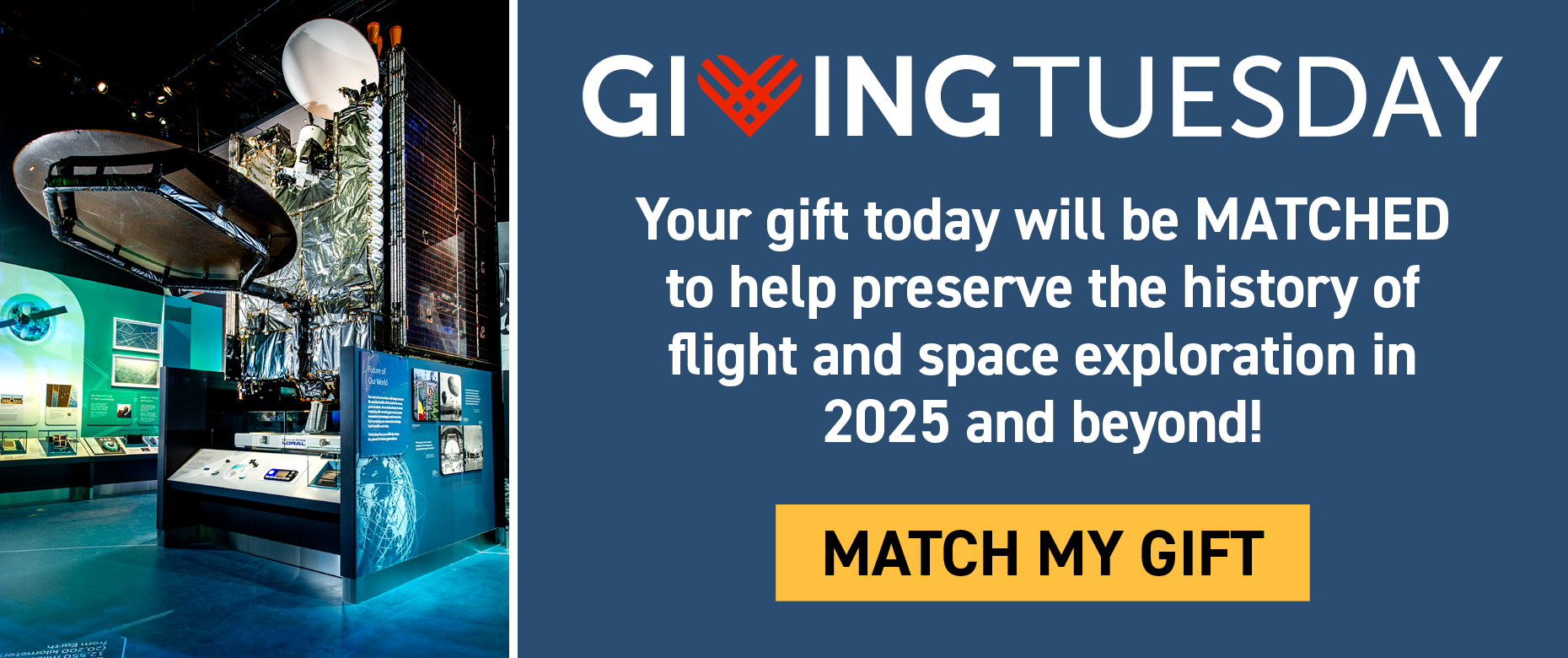All Stories
Showing 241 - 250 of 1717
Seventy-five years ago, U.S. Air Force Captain Charles E. “Chuck” Yeager piloted the Bell X-1 Glamorous Glennis to become the first airplane to fly faster than the speed of sound (Mach 1).
On October 4, 1957 the Soviet Union successfully launched the first artificial Earth satellite, Sputnik. For some, Sputnik's launch inspired an interest in rocketry and brought many scientists into the space industry. One of those people was Homer Hickam, a high schooler in a small West Virginia mining town who would go on to work for NASA, write a memoir, and inspire a movie. On today’s episode we unpack that film – October Sky.
As Mario Andretti's 1969 Indy 500-winning race car goes on display at the National Air and Space Museum, we reflect on his against-all-odds win and legacy in the motorsports community.
With the Museum’s west-end galleries re-opening, two murals by artist Eric Sloane will be on display. The Earth Flight Environment mural was re-installed in the lobby and a lesser-known mural titled Weather Mural is displayed again for the first time in almost 40 years. Both murals emphasize artist Eric Sloane’s integral role in communicating the relationship between weather and flight through art.
This fall, a spacecraft from a galaxy far, far, away will go on display at the Museum in DC: a full-sized T-70 X-wing Starfighter from Star Wars: The Rise of Skywalker. Get a behind-the-scenes look at how it was installed in its new display home.
Museum curator Matt Shindell interviewed artist Rafael Vargas-Suarez, whose work engages with spaceflight, space technologies, and human futures. Examine his various artwork and what he has to say.
Are you a lover of all things lunar? Here are three hidden gems from the Destination Moon exhibit you won’t want to miss.
There would be no Apollo program without the Gemini program, which took place in between the Mercury and Apollo programs from 1964 to 1965.
For six months in 1964 the US Air Force flew an airplane at supersonic speeds over Oklahoma City, often multiple times a day, in a series of tests called Project Bongo. The story of how and why the tests happened is a wild ride, and we’re breaking it down for you today on AirSpace.
In the late 1950s, he United States and the Soviet Union were locked in a competition for global influence and prestige—the Cold War—and began to compete on a new frontier: space. Both nations started programs to send humans into space. In the United States, that program was Project Mercury.
